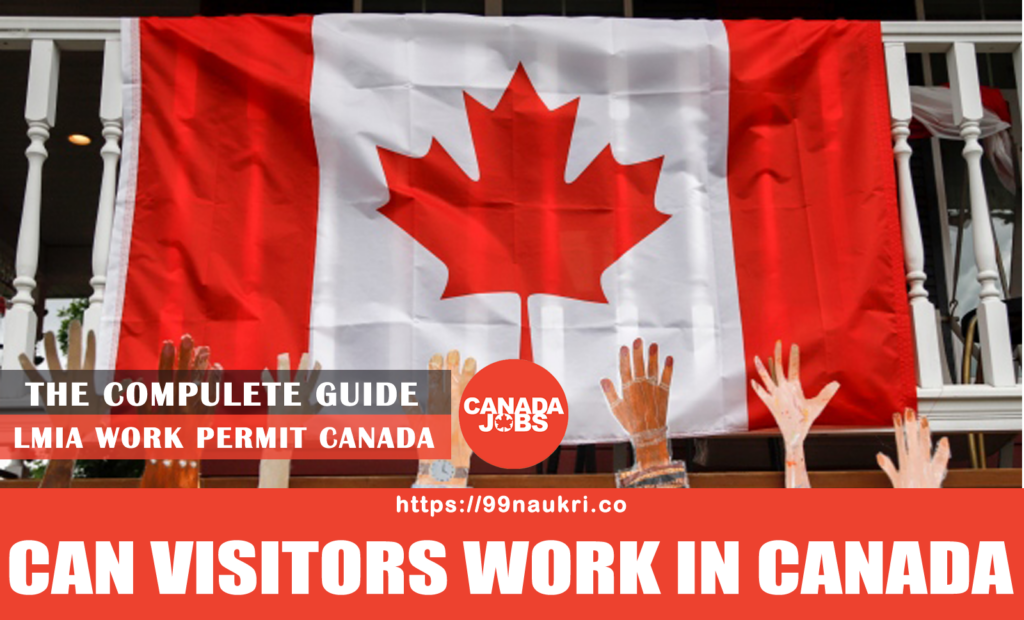Can Visitors Work in Canada
I. Types of Work Permits in Canada
Can visitors work while venturing through beautiful Canada? The answer is, indeed, they can, provided they have the correct permit. Work permits in Canada generally fall under two main programs.
A. Temporary Foreign Worker Program
The Temporary Foreign Worker Program is designed for those who want to work for a specific employer in Canada. Under this program, the employer needs to obtain Labour Market Impact Assessment (LMIA) to ensure that there is a need for a foreign worker to fill the job.
B. International Mobility Program
Under the International Mobility Program, employers can hire foreign workers without a LMIA. This program aims to advance Canada’s broad economic and cultural interests, and its workers are typically exempt based on factors like the nature of the work or the worker’s country of origin.
In conclusion, visitors can engage in work activities in Canada provided they have an appropriate work permit and meet specific program requirements.

II. Eligibility for Work Permits in Canada
Canada is a dream destination for many international visitors, and getting a job here might be even more exciting. However, it’s essential to understand the requirements and procedures to be eligible for a work permit.
A. Labour Market Impact Assessment (LMIA)
Firstly, an employer might require a Labour Market Impact Assessment (LMIA), to hire an international worker. The LMIA process ensures that no Canadian citizen or permanent resident is available to do the job.
B. LMIA-Exempt Work Permits
In contrast, certain jobs are LMIA-exempt, allowing employers to hire international workers without an LMIA. The conditions for exemption include:
- Intra-company transferees: Employees being transferred to a Canadian branch of the same company.
- Trade agreements: Such as the North American Free Trade Agreement (NAFTA).
- International Experience Canada: For young adults seeking work-travel experiences.
Remember, while some visa types allow you to work in Canada, others strictly forbid it. Always be clear about your status to maintain your legal standing in the country.
III. Working Holiday Visas
One of the ways visitors can work legally in Canada is through Working Holiday Visas as part of the International Experience Canada (IEC) Program. This visa allows travelers, typically aged 18-35, to work while visiting Canada, usually for up to one year.
A. International Experience Canada (IEC) Program
The International Experience Canada (IEC) Program provides young individuals from around 30 countries the opportunity to travel and work in Canada. It is divided into three categories: Working Holiday, Young Professionals, and International Co-op Internships.
B. Eligibility and Application Process
To participate in the IEC Program, applicants must:
- Be a citizen of one of the 30+ countries that have a bilateral youth mobility agreement with Canada
- Meet the specific criteria for their country and the category they’re applying (Working Holiday, Young Professionals, or International Co-op)
- Have a valid passport for the duration of their stay in Canada
- Have the appropriate insurance coverage
- Be admissible to Canada.
Check the Government of Canada’s immigration website for the most updated information on eligibility and the application process.
In conclusion, the IEC Program offers a fantastic opportunity for young people to gain work experience while exploring the beautiful landscape and rich culture of Canada. For potential applicants, it’s essential to start the process early, as competition for places can be fierce.
IV. Study and Work Options in Canada
If you’re a visitor or international student in Canada, you might wonder if there are ways for you to work alongside your travel or study. Fortunately, Canada offers flexible options for visitors and students to gain meaningful work experience.
A. Post-Graduation Work Permit (PGWP)
The Post-Graduation Work Permit (PGWP) is targeted at international students who have completed a program of study at a designated learning institution in Canada. This permit allows graduates to work in Canada for up to three years after their studies are completed. More details can be found on Canada’s official Immigration and Citizenship site here.
B. Co-op Work Permits
On the other hand, Co-op Work Permits are designed for current students who need work experience as part of their program of study. This permit allows students to work full-time during their academic breaks. More about this program can be read on the same official government site.
In conclusion, Canada provides ample opportunities for both visitors and international students to gain valuable employment experience. Be sure to make the most of these resources to enrich your stay in Canada!
V. Spousal Work Permits
The use of Spousal Work Permits has helped many visiting spouses or common-law partners in Canada secure work and contribute economically. They are classified under Open Work Permits, which means they aren’t restricted to a specific job or location.
A. Open Work Permits for Spouses or Common-Law Partners
Open Work Permits enable spouses or common-law partners of temporary foreign workers or international students to find employment in Canada. The best part is that these permits aren’t tied to a specific employer, granting flexibility in the Canadian job market.
B. Eligibility and Application Process
Eligibility for these work permits hinges on the spouse or partner being a valid temporary resident (visa holder, student, etc). The application process involves form submission, payment of fees, and processing which could take a few weeks. Remember that each case is different; thus, outcomes may vary.
VI. Intra-Company Transfers
Intra-Company Transfers in Canada are a unique way for foreign workers to bring their skills and expertise to benefit Canadian businesses. The government of Canada allows multinational companies to temporarily transfer qualified foreign employees to Canada for this purpose, as long as they meet certain criteria outlined by Immigration, Refugees, and Citizenship Canada (IRCC).
VII. Provincial Nominee Programs
Provincial Nominee Programs (PNPs) are another way for visitors to work in Canada. These programs allow provinces and territories to nominate individuals who wish to immigrate to Canada and are interested in settling in a particular province.
Here’s a brief comparison of these options:
| Visa Option | Requirements | Target Audience |
| Intra-Company Transfers | Must be employed abroad for at least 1 year in last 3 years by the company | Skilled Workers |
| Provincial Nominee Programs | Must be employed abroad for at least 1 year in the last 3 years by the company | Immigrants Interested in Specific Provinces |
It’s important to note that both these options require visitors to comply with immigration rules and meet certain eligibility criteria. Always ensure to consult with immigration experts or the IRCC for detailed information.
VIII. Conclusion
Indeed, the options for visitors to work in Canada are vast, but you must proceed strategically to ensure all legal and residency requirements are met.
A. Summary of Work Permit Options in Canada
Open Work Permits and Employer-Specific Work Permits are the two primary categories of work permits that visitors to Canada can obtain. The choice between these two largely depends on your unique situation and employment prospects.
B. Factors to Consider When Working in Canada
There are several factors to consider when working in Canada as a visitor, such as the type of work, duration of stay, and potential employer’s requirements.
More Jobs:-
Free visa sponsorship farm jobs in Canada 2023 2024
Urgent Hiring Farm worker Jobs in Canada
Farm Jobs in Canada With Free Visa Sponsorship 2023
Canada Post Jobs | Canada Post Hiring 2023














